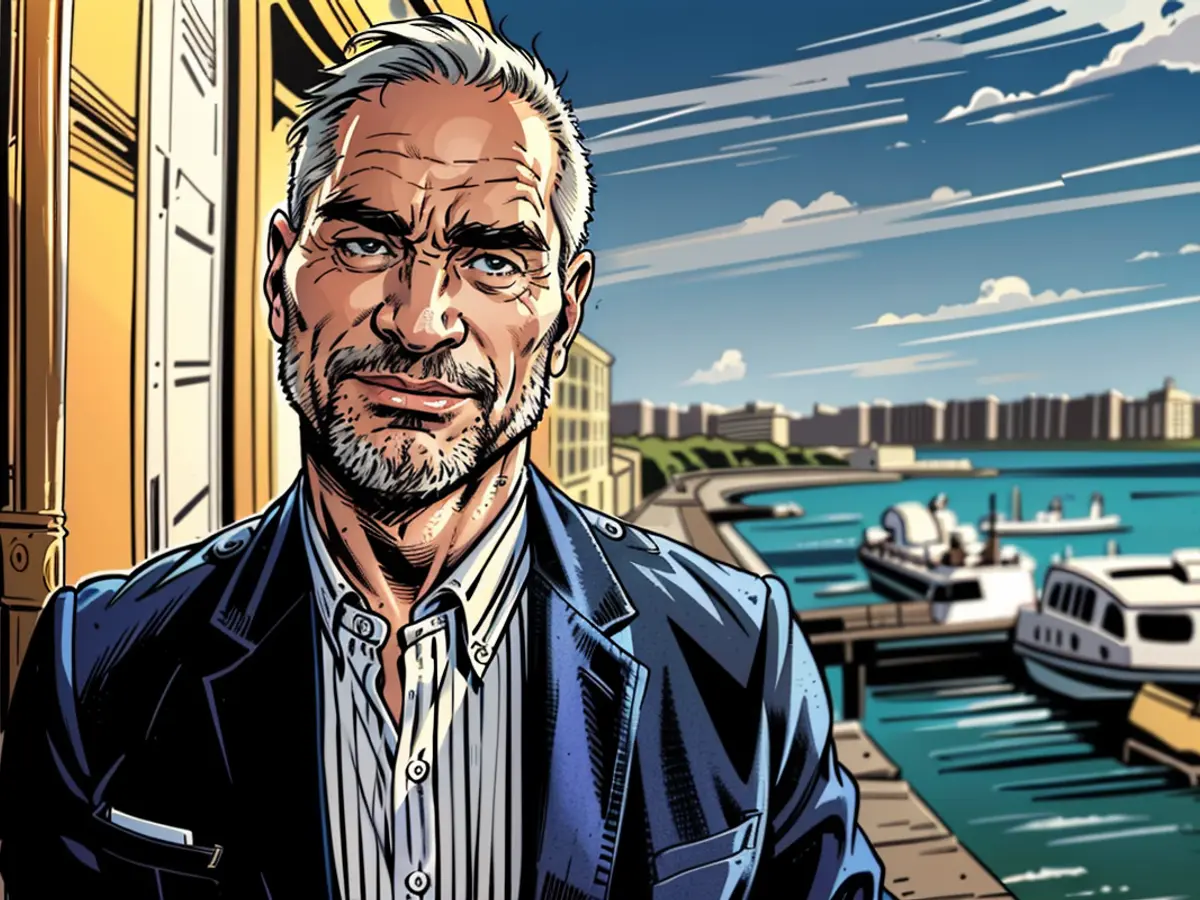Roland Emmerich looked death in the eye
With films like "Independence Day," "The Day After Tomorrow," and "2012," Stuttgart native Roland Emmerich has transformed into one of the most successful German exports in Hollywood. Now, the director has publicly revealed that his career once came dangerously close to an end. Emmerich had cancer.
Star director Roland Emmerich has made his first public admission that he came close to death many years ago when a brain tumor was discovered. The 68-year-old revealed this in an interview with the magazine "Bunte." At the time, he thought, "it's all over."
After the diagnosis, he underwent surgery twice, Emmerich disclosed further. This is why there is a long scar on his head. It was a "moderate-grade tumor." "But if it had come back, it would have likely been a high-grade tumor, and that would have been my death sentence," the director said. In the end, everything turned out well. "I had genuine luck."
The illness did not derail him, Emmerich explained. "I had to look death in the eye. I'm not the type who puts his hands over his head and says, 'Oh, I have to die.' That only spurred me on. I then made my climate change film, 'The Day After Tomorrow,' because I still wanted to do something good for the world. It should be inscribed on my tombstone. It came to theaters in 2004 and was a huge success."
No Love Stories, Thanks!
These days, he takes things more easygoing, the filmmaker says: "Whatever happens, it just happens." He is also taking more time for his private life, friendships, love, and his husband. "All these things are important in life," Emmerich added. Since 2017, Roland Emmerich has been happily married to his 33-year-old husband Omar de Soto.
Despite all the romantic happiness in his private life, it is not an option for him to produce a love story, the director clarified. "I can't understand those films. They're cheesy and no longer make any sense in our world." Instead, he wants to continue telling "big stories." Currently, he is working on a project about climate refugees, and his new gladiator series "Those About to Die" will debut on Amazon Prime Video in July.
Roland Emmerich is one of the most successful German exports to Hollywood. The native of Stuttgart first drew attention to himself in 1994 with the film "Stargate," before reaching the pinnacle of his career in 1996 with "Independence Day." He followed this with films like "Godzilla" (1998) and "The Patriot" (2000), and in 2004, he created another successful disaster film with "The Day After Tomorrow." In 2009, he made another successful disaster film with "2012." Most recently, he was in theaters in 2022 with "Moonfall."
Despite his success in Hollywood, producing action movies like "Independence Day" and "The Day After Tomorrow," Roland Emmerich's career faced a significant challenge when he was diagnosed with cancer. Despite the immediate fear of impending doom, Emmerich's determination to push through led him to create his climate change film "The Day After Tomorrow," released in 2004, which was both a critical and commercial success. In his personal life, Emmerich has moved towards taking things more easygoing, taking time for his loved ones and private life, and is happily married to his husband Omar de Soto since 2017. Despite not being interested in love stories, Emmerich continues to tell "big stories," working on a project about climate refugees and a new gladiator series called "Those About to Die" set to debut on Amazon Prime Video in July.







